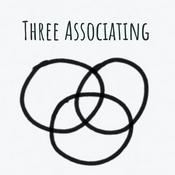In his therapy with Noor, Andrew comes to realise that he is inadvertently co-constructing an avoidance of grieving and mourning. Through a careful unpacking of enactments in the room, Andrew comes to see how mini separations and losses within the therapy caused by sessions ending and holidays taken influence both the content and process of therapy. Through modifications in the pace and rhythms of therapy, Noor unconsciously communicates her grief. Andrew initially struggles to recognise this as to do so involves him in accepting loss himself. Andrew is helped by his unconscious, which reveals itself in the session both through an enactment of a jet lagged state, and an understanding of what the words jet lag signify. Thus, an understanding of both the music and the the words of the session, as it developed in supervision, allowed a paradigm shift from intellectual defence to emotional engagement.



